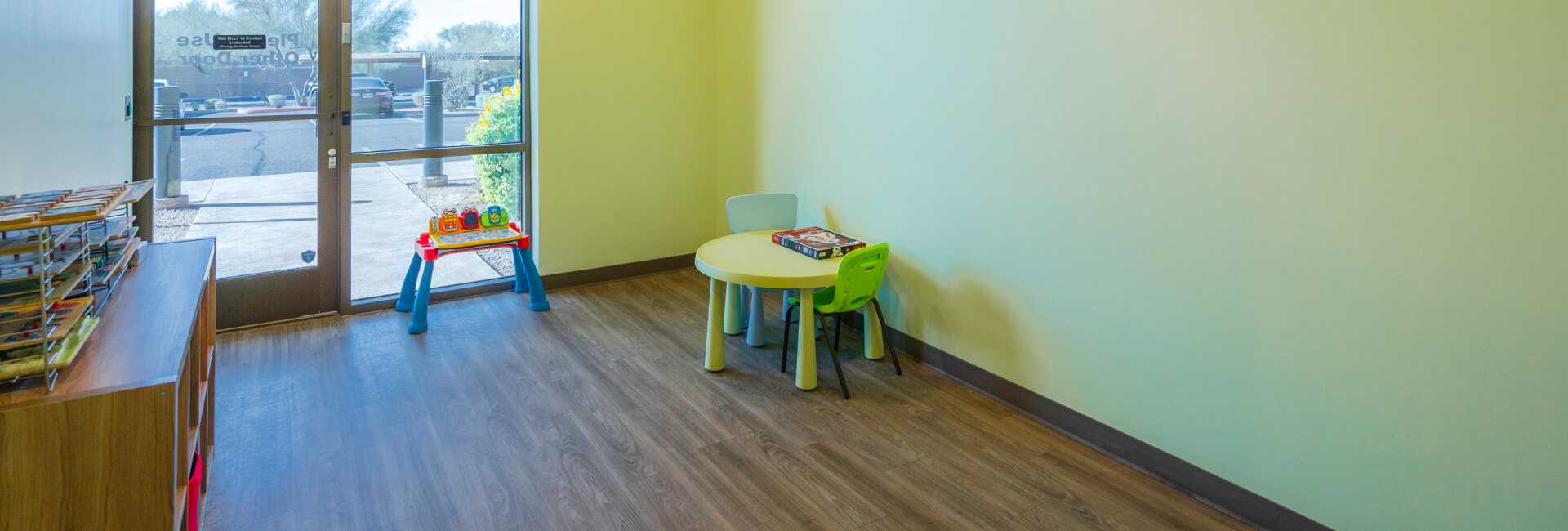Is My Child Ready to Transition into a Non-ABA School?
At Scottsdale Children’s Institute in Scottsdale, Arizona, our team of experts specializes in applied behavior analysis and ABA therapy to help children improve and develop their social, learning, and communication skills in real-world situations, ranging from classroom environments to the home.
To help gauge your child’s school readiness, we recommend using the following guidelines and science-based assessments.
Evaluating standard readiness milestones
While all children develop differently, most schools in the Scottsdale, Arizona area have an approved list of criteria to gauge whether a child is ready to start kindergarten. Some of these general readiness milestones include having:
- Fine motor skills, like being able to hold utensils and pencils
- Emotional and social skills, like knowing it’s important to take turns
- Language and literacy skills, like speaking in sentences with at least five or six words
- Basic math skills, like being able to identify shapes and numbers
Most children starting kindergarten in a general education setting should have basic self-help skills as well, like being able to use the bathroom and wash their hands on their own.
Science-based readiness assessments
In addition to performing general academic, emotional, and behavioral assessments, our team offers kindergarten readiness assessment analysis in relation to the C-PIRK.
The C-PIRK, or Comprehensive Preschool Inventory of Repertoires for Kindergarten Assessment, looks at a broad range of your child’s skills across numerous areas, including:
- Math
- Reading and writing
- Language and social skills
- Compliance and self-management
We perform this assessment free of charge and compare your child’s results with the early learning standards outlined by the state of Arizona. Using these tools, we can identify behavioral challenges your child may face, responses they may have to a general education setting, and whether or not they are ready for a non-ABA kindergarten environment.
Preparing your child for a non-ABA school
At Scottsdale Children’s Institute, our goal is to ensure both you and your child succeed in non-ABA school settings, and beyond. To reach these goals, we offer inclusive ABA education learning opportunities in age-appropriate classrooms for children ages 0–11.
Our inclusive, science-based model involves a customized and tailored approach designed to meet the needs of each of our students, and our low staff-to-student ratio guarantees your child receives the precise level of attention they require. In this specialized environment, every child receives personalized and high-quality instruction, intervention, and support to help them see long-term results.
At the same time, we also offer parents and caregivers the tools they need to help reinforce positive behaviors and reduce problematic ones outside of structured ABA settings. And, throughout your child’s educational experience at Scottsdale Children’s Institute, we track their progress and implement any modifications they need to prepare them for non-ABA school environments and real-world situations.
To learn more about when to transition your child to a non-ABA school, contact us in Northern Scottsdale by calling 480-410-4060 or by requesting a phone call online today.





